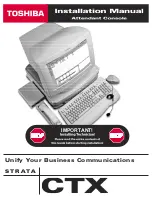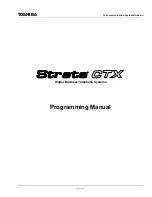
Channel path. The Auxiliary Sends are similarly split to
give 1 Foldback and 2 Auxiliary sends in both the
Channel and Monitor paths, or all four Auxiliary sends
may be assigned to the Channel path.
The Monitor fader is normally a rotary control, but an
INPUT REVERSE switch swaps Channel and Monitor in-
puts, allowing the tape return signal to be brought
down the full facilities of the Channel path and mixed
on the long throw channel fader. The Channel PAN
control drives a matrix of routing switches to feed the
signal to 8 Groups in stereo pairs, plus the Stereo mix.
The Group masters are arranged as pairs, and the out-
puts are normalled to the respective Tape Sends on the
input channels in blocks of eight unless the Channel DI-
RECT switches are pressed. The Group output is also
available on a separate jack socket for use as an extra
send during mixdown. Groups may be routed as odd
and even pairs to the Stereo mix, or as combined
MONO feeds. Each group has a 16-segment LED bar-
graph meter.
Above the Group masters are 4 Stereo Effects Returns,
with balanced inputs, 2-band shelving EQ and feeds to
the two Foldback busses, the Stereo mix or summed
to the local Groups in stereo.
The Master section comprises the control room moni-
toring facilities, Oscillator with two fixed frequencies,
Talkback and Stereo mix and AFL/PFL metering.
A full description of all facilities in Getting to know your
console can be found on page 10.
SPIRIT STUDIO is designed to be as user-friendly as
possible, but a few minutes spent reading through this
manual will help you become familiar with the product
away from the pressure of a recording session, and al-
low you to gain full benefit from the superb
performance offered by your new mixer.
Above all, remember that your SPIRIT mixer is de-
signed to extend your creativity. The more you explore
the controls and the effect they have on the sound out-
put, the more you will appreciate how you can
influence and enhance the final sound, both by careful
and creative balancing of channels and the use of
Page 3






































